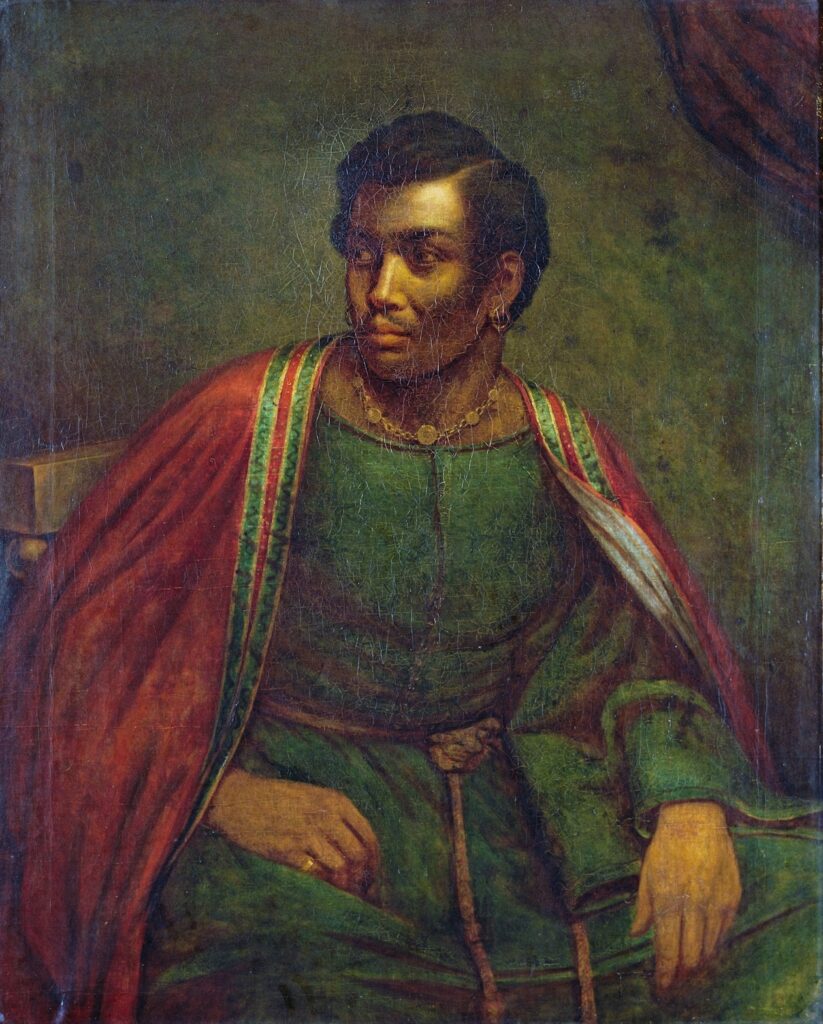2008 වසරේදී සෙලින්කෝ සමූහ ව්යාපාරය දින කිහිපයකින් කඩා වැටී අවසන් විය. එමගින් 16000 කට ආසන්න පිරිසකට රැකියා අහිමි විය. පසුව මාධ්ය මගින් වාර්ථා වූ නිධාන කතාව සරලව මෙසේය.
ජේයරාජ් ප්රනාන්දුපුල්ලේ අමාත්යවරයාගේ බිරිඳ එක්වරම ගෝල්ඩන් කී ආයතනයෙන් තමන් සතු තැම්පතු රැපියල් මිලියන 125 ක් නැවත ලබා ගැනීමට යයි. එවිට ආයතනය සඳහන් කරන්නේ ඒ සඳහා දින කිහිපයක් ලබා දෙන ලෙසය. නමුත් එක්වරම මාධ්ය මගින් ”ගෝල්ඩන් කී” කඩා වැටී ඇති බවට ප්රචාරය වෙයි.මේ සිදුවීම මාධ්යට ලබා දෙන්නේ බැසිල් සහ කබ්රාල් බවටද තොරතුරැ වාර්ථා විය. විශාල මාධ්ය ඝෝෂාවකට පසු ලංකාවේ පැරණිතම දේශීය ව්යාපාර ජාලය බිමට කඩා වැටී සමතලා විය. අවසානයේදී මාධ්ය මඟින්ම සිදු කළ පශ්චාත් මරණ පරීක්ෂණයෙන් හෙළි කරන ලද්දේ 2005 ඡන්දයේදී ලලිත් කොතලාවල රනිල්ට ඡන්දය දෙන ලෙස තම ව්යාපාර ජාලයේ සේවකයින්ට මෙන්ම සමීපතමයින්ට පවසා ඇති බව ය. ඒකට පලිගැනීමක් ලෙස මෙලෙස කල බවත්ය.
ඒ සිදුවීම එසේය. දැන් එවැනිම කතාවක් නැවත පැතිරයමින් ඇත. ඊට අනුව තිළිණි පියුමාලි නම් තැනැත්තියක් ලඟ තැන්පත් කළ සල්ලි සඳහා ඇය ලාභංශ ලබා දී නැත. එ් පිළිබඳ දීර්ඝ නම් ලයිස්තුවක් සංසරණය වෙමින් ඇත.පවසන්නේ CID එකෙන් ලැයිස්තුව එලියට පැමිණි බවය. නම් ලයිස්තු එලියට දෙන CIDඑක CID එකක් ද යන්න විමසීම අර්ථයක් නැති වැඩකි. එසේ වී ඇත්නම් එය පැහැදිලි ලෙසම රටේ පාලකයාගේ අසමත්කමක් සහ ආයතනය පිළිබඳ ඇති අනවබෝධය ලෙස තේරැම්ගත යුතුය.
දැන් මාතෘකාව මේ කිසිවක් නොව කවුද මේ තිළිණි පියුමාලි පිටුපස සිටින ”ජානකී සිරිවර්ධන” යන්නයි. ජානකී සිරිවර්ධන යනු ක්රිෂ් ව්යාපාරය ලංකාවට ගෙන ඒමට කටයුතු කල දේශීය නියෝජිතවරියයි. ක්රිෂ් යනු ඉන්දියන් සමූහ ව්යාපාරයකි. නාමල් රාජපක්ෂගේ නම කියවුන ගනුදෙනුව වන්නේ ද ක්රිෂ් ගනුදෙනුවයි. එමෙන්ම ඇය පසුගිය වසර 10 ක යක පමණ මෙරට මෙන්ම විදේශීයවත් සිදු වූ මෙවැනි ආයෝජන වල බලවත් චරිතයකි. එමෙන්ම ඇය පොදු ප්රවාහනයේ ගමන් බිමන් ගිය විජේරත්න වරකාගොඩගේ ලේලිය ද වනු ඇත.
කලු ආර්ථික ,සුදු ආර්ථික ගැන කිසිවක් නොදන්නා දවස යැපෙන 60% ක ජනතාවක් සිටින රටක ඇයි දැන් මේ වගේ දෙයක් එලියට ආවේ? කාටද, කාගෙන්ද මුදල් වංචාවක් සිදු වී ඇත්තේ?
බැලුම්ගල මල්ලිලා ඇයව ඇන ගසද්දී ගොසිප් කතා ලියන කියන Al වයසේ ළපටි මනස් ඇයව දිරිය කාන්තාවක්ද බවට එක විට පත්කොට විනෝද වෙමින් ඇත.
ගියවර කොතලාවල අවසන් කලා සේ මෙවර අවසන් කරන්න යන්නේ කවුද? කාගේ උවමනාවටද? කවුද මේක පිටිපස්සේ ඉන්නේ ? 2008 වගේම මාධ්ය මරණපරීක්ෂණය ඉවර වෙනකම්ම ඉන්න වෙයි ද, මෙවරත් හරිම කතාව දැන ගන්න?
2. ඔවුන් හොරු නම් අපිත් හොරු ද?
දැන් මේ සිදුවීමට අදාළ ආර්ථික දර්ශනවාදය පිළිබඳව අපි පොඩ්ඩක් කතා කරමු. ලංකාවේ දේශපාලන චින්තන ඉතිහාසය දෙස බැලුවම දේශීය ධනපති පන්තියට එරෙහි අරගලයට ප්රථමව අධිරාජ්යවාදී අරගලය ආරම්භ වෙයි. ‘සමසමාජ පක්ෂය’ කියන්නේ, ලංකාවේ පැරණිතම පක්ෂය යි. එම නිසා, ලංකාවේ ධනපති පන්තිය, ධනවාදය බිහි වෙන්නත් පෙර ධනපති විරෝධය, පුද්ගලික දේපළ විරෝධය පටන්ගෙන තිබේ. මේ නිසා, ඓතිහාසිකව ලංකාවේ ”ධනපති ආර්ථිකය” පවා ගමන් කරන්නේ ආධ්යාත්මික ප්රවේශයකින් [Dominant Nationalistic Economy] මිස ලෞකික ප්රවේශයකින් නොවේ. ආර්ථිකයට තිබෙන මෙම ආධ්යාත්මික සහ පාරභෞතික ප්රවේශය පිළිබඳව ලංකාවේ ආර්ථික විද්යාඥයින්ට කිසිදු අදහසක් නැත. (‘ධනපති’ වෙනුවට ජාතිය අධිනිශ්චය වන රාමුව එය යි.)
අපි දැන් එක් උදාහරණයක් ගනිමු. ආර්ථික විද්යාවේ ලාංකීය පෙළපතට අනුව, ධනේශ්වරයට පෙර ධනේශ්වර විරෝධය පැමිණ තිබේ. එම නිසා, සම්ප්රදායක් හැටියට ආර්ථික විද්යාඥයින් පවා අවිඥාණකව සිතන්නේ, ලංකාවේ සමාජයට ”තැරැව්කරුවන්” (Brokers, Dealers) අයහපත් කියා ය. ‘ගිහාන් පතිරණ’ වගේ ඉංග්රීසියෙන් කියවන්න පුළුවන් නමුත් චිත්රපටවල රඟපෑම ඊටත් වඩා හොඳට පුළුවන් ආර්ථික විද්යා සිතන්නෙකු පවා ධනවාදය පරිකල්පනය කරනු ලබන්නේ, ධනවාදය වඩා අඩුවෙන් විප්ලවකාරී සහ එක තැන පල්වෙන ආර්ථික ක්රමයක් කියා ය. එසේ වන්නේ ඇයි කියන එකට පෝල් කෲග්මන් ආර්ථික විද්යාඥයා දෙන උත්තරයක් තිබේ. ඔහුට අනුව, ආර්ථික විද්යාඥයා කියන පුද්ගලයා ‘ධනවාදය’ කියන වචනය පාවිච්චි කරන්නේ නැත. ඔහුට අනුව, ආර්ථික විද්යාඥයා ඒ වෙනුවට සංකල්ප තුනක් වහරයි.
1.වෙළෙඳපොළ – අපි මොකක්ද කළ යුත්තේ යන්න පහදන ප්රවාදය.
2. අපගේ මිල දී ගැනීමේ හැකියාව – ක්රය ශක්තිය.
3. වියදම් කරන්න හෝ ඉතිරි කරන්න ඔබ ළඟ කොච්චර වත්කම් තිබෙනවා ද?
ලංකාවේ ආර්ථික සහ සමාජීය අර්බුදයට මූලික වන නිදන්ගත රෝගය තිබෙන්නේ, වාස්තවික [objective side]පැත්තේ නොව ආත්මීය පැත්තේ ය[subjective side]. ලංකාවේ නූතන වාමාංශිකයන් වන අපට ධනපති ආර්ථිකය පිළිබඳව පාඩම් කියලා දෙන්න සිදු වීම හාස්යජනක තත්වයකි. උදාහරණයක් ලෙස, ඩයලොග් සමාගම ජේම්ස් බොන්ඩ් වර්ගයේ බෑග් එකක සල්ලි දාගෙන පැමිණ නැවක දාගෙන යන තරම් සල්ලි හෙව්වේ රොහාන් සමරජීවගේ වරදකිනි. ඩයලොග් සමාගම කොටස් වෙළෙඳපොළ මගින් පාලනය වීම වෙනුවට එය ප්රාග්ධනය මගින් පාලනය වීම තීන්දු කළේ, එවකට TRC එකේ ලොක්කා වුණ රොහාන් නිසා ය. [ In 90’s] ඔහු, අද සමාජ ප්රතිසංස්කරණ පිළිබඳව කතා කරයි. ඔහු අතින් සිද්ධ වුණු දේ පිළිබඳවවත් ඔහුට සංවේදීතාවයක් නැත. ලංකාවේ සමාගම් කියන්නේ, ප්රාග්ධනයේ තර්කනය හරහා බදු ප්රතිපත්තිය තීරණය කරන කණ්ඩායමකි. දිලිත් ජයවීරලා, නාලක ගොඩහේවලා, ධම්මික පෙරේරාලා මුදල් වලින් මුදල් මැවීම කළේ ඔය ඉහත කී හිලෙන් රිංගා ය. සරලව කිවහොත්, කොටස් වෙළෙඳපොළ ලංකාවේ දී ප්රජාතන්ත්රවාදී නැත. එය, මහ බැංකුව ද පිළිගනු ලබයි.
විජේවීරවාදීන්ට අනුව, තැරැව්කරුවන්ගේ කටයුතු සමාජයට අහිතකර ය. ඔවුන්ට ආර්ථිකය පිළිබඳව විශේෂයෙන් ම, ධනවාදය පිළිබඳව තිබෙන්නේ සදාචාරවාදී අදහසකි.[Moral Resentment] අඩුම වශයෙන්, ඔවුන් මාක්ස් කෙසේ වෙතත් ”වර්නර් සොම්බාර්ට්”[“Modern capitalism is nothing more nor less than an expression of the Jewish spirit”; it only needs to be illustrated.] පිළිබඳවවත් දන්නේ නැත. වසන්ත සමරසිංහ වැනි ජිම්නාස්ටික් ක්රීඩාවට මිස සිතන ක්රීඩාවට නුසුදුසු පුද්ගලයන්ගෙන් ”විජේවීරවාදය” පිරී ඉතිරී ගොස් තිබේ.
තිළිණිගේ සිදුවීමේ දී වඩා වැදගත් වන්නේ, ජානකී සිරිවර්ධන ය. ඇය, දක්ෂ තැරැව්කාරියකි. මන්ද, ධනේශ්වර ආර්ථිකයේ චලනය රඳා පවතින්නේ ‘අතිරික්ත වටිනාකම’[surplus value- political-economy.] මත වන බැවිනි. තැරැව්කාරයන් කරන්නේ, මේ ‘අතිරික්ත වටිනාකම්’ මවන එකයි.[By using surplus enjoyment- Libidinal economy.] ඉතාම සරලව, ජානකී කරපු දේ මෙය යි. ලංකාවේ නිල ආර්ථිකයට පිටින් නිර්මාණය වන නො නිල ආර්ථිකය ඉතා විශාල ය. එසේ වන්නේ, රාජ්ය ප්රතිපත්තිවල තිබෙන හිස්තැන් නිසා ය. අනෙක් පැත්තෙන්, ප්රාග්ධනය යොදා පටන් ගන්නා කර්මාන්ත හෝ වෙනත් වාණිජ ව්යාපාර රටේ නොමැති නිසා නිල නොවන ප්රාග්ධනය පිටරට පැටවීම[capital flight] හැර වෙන විකල්පයක් ලංකාවේ නැත. රජයේ ආදායම් එකතු කරන නිලධාරීන්ට අල්ලස් ලෙස ලබා ගන්නා මුදල් පවා පිටරට පැටවීම හැර වෙන විකල්පයක් නැත. මහ බැංකුවේ නිලධාරීන් විශ්රාම ජීවිතය ගෙවීමට ඔස්ට්රේලියාවට යන්නේ හිස් අතින් නොවේ.
ඒ අනුව, තිළිණි සහ ජානකී කියන්නේ, මූල්ය ප්රාග්ධනයේ [Agents of Finance capital] නියෝජිතයන් ය. ඒ අය, සමාජයට හිතකර පිරිසකි. මේ අය ළඟ මුදල් තැන්පත් කළ අය බබාලා නොවේ. ඒක, ඒ අය අතර වෙච්ච පොරොන්දු ගිවිසුමකි. ගිවිසුම කැඩුවම උසාවියට හෝ පොලීසියට හෝ මාධ්ය වලට ගියා කියලා වැඩක් වන්නේ නැත. දිලිත් ජයවීරලා කෝටිපතියෝ වුණේ කෙසේද? එක වත්තක්වත් නැතිව Brand Name එක විතරක් පාවිච්චි කරලා තේ විකිණීම දක්ෂකමක් මිස හොරකමක් නොවේ. නමුත්, අවාසනාවකට ‘දෙරණ’ රූපවාහිනිය සහ සමාජ මාධ්ය තිළිණිගේ උප්පැන්නය, අධ්යාපනය, කුලය වගේ විකාර පස්සේ පන්නනවා.
ජානකී කියන්නේ, එක්තරා ජනාධිපතිවරයෙකුගේ රුසියානු සංචාරය පවා සංවිධානය කළ කෙනෙකි. ඇය, රාජ්ය තාන්ත්රික සබඳතා තිබෙන, ලස්සන සහ දක්ෂ ව්යාපාරිකාවකි. ලංකාවේ ”සිංහල මාධ්යවල සහ විජේවීරවාදය” තුළ සිටින පිරිමි කියන්නේ, කුණු ගඳ ගහන කුහක ඊර්ෂ්යාකාරයෝ ටිකකි. නිල නොවන ආර්ථිකය කියන්නේ, නිල ආර්ථිකයේම ආර්ථික අතිරික්තයක් මිස ඊට පරිබාහිර ප්රපංචයක් නොවේ. විශාල චින්තන විප්ලවයක් නොකර රටක ‘අතිරික්තය’ බිංදුව කළොත් ඒ වහාම ඒ රටේ ආර්ථික වර්ධනය බිංදුව වෙයි. 1917 දී, විප්ලවයට පසුව ලෙනින් මුහුණ දුන්නේ, මේ අවාසනාවන්ත තත්ත්වයට ය. ඔහුට යළිත් ‘අතිරික්තය’ සඳහා ප්රවේශයක් අවශ්ය වුණි. එය තමයි, නව-ආර්ථික ප්රතිපත්තිය.[NEP]
මේ වන විට, බැඳුම්කර නඩුවෙන් අර්ජුන් මහේන්ද්රන් යම් ප්රමාණයකට නිදහස් වී තිබේ. හේතුව වන්නේ, ‘මුදල් වලින් මුදල් මැවීම’ තහනම් නම් එතැන ම ධනවාදය මිය යාමයි. දිලිත් ජයවීර මේ මහා අර්බුදයට විසඳුම ලෙස ”උවිඳු විජේවීරව” පුම්බයි. එහෙයින්, ඔහු කොච්චර හොඳ තැරැව්කාරයෙක්ද? මහින්ද හරහා බිස්නස් කරපු ව්යාපාරිකයන් අද රනිල් හරහා බිස්නස් කරයි. එහෙයින්, තිළිණිගේ ඊනියා මූල්ය චෝදනාවට වෙන්නෙත් මහ බැංකු වංචාවට හිමි වෙච්ච ඉරණමම ය. මහා බැංකු වංචාව හරහා රනිල්ව දේශපාලනයෙන් අතු ගාන්න ශිරාල් ලක්තිලක උත්සාහ කරන ලදී. ප්රතිඵලය වූයේ, රනිල් ජනාධිපති වීමයි. මෙවර උත්සාහය වන්නේ, නාමල් රාජපක්ෂව ඊළඟ තරඟයෙන් ඉවත් කිරීමයි. ඉතිහාසය විවෘතය.
ලංකාවේ මාධ්යකාරයෝ කියන්නේ, හොඳ ව්යාපාරිකයන් සහ මුදල් වලින් මුදල් මවන පිරිසකි. හොර, වංචා, දූෂණ කියන්නේ මාධ්ය ව්යාපාරිකයන්ගේ කරළ පැහෙන හේතු-ඵල සම්බන්ධතාවයකි. [Symbolic Capital]
රාහුල් විජේහේවා.
Note-
විජේවීරවාදීන්ගේ ආර්ථිකය ගැන අදහස පහත සඳහන් වර්ගවාදය නොවේද?[Problem of Real abstraction- හුවමාරැ වටිනාකම් ලෝකයක දී ආර්ථික ඒජන්තයාගේ සැබෑ හැසිරීම-abstract logic = Jews / Tamils/ Moors]
Sombart’s book The Jews and Modern Capitalism, which appeared in Leipzig in 1911, is the illustration of it, rich, suggestive, intellectually irresponsible, and in its political consequences ultimately disastrous. Himself a Gentile, an admirer of the Jews, he became involuntarily a Founding Father of anti-Semitism.
To maintain his thesis Sombart made a number of suppositions. First, he supposed that the Jewish religion was inherently capitalist (all the “capitalist” elements which Weber had detected in Puritanism were conveniently found by Sombart to have been borrowed from Judaism). Then he assumed that all medieval commerce in Europe had been in the hands of the Mediterranean Jews. Then he supposed that the economic expansion of Northern Europe followed the sudden arrival of these exiled Mediterranean Jews. Finally, to round off his thesis, he supposed that all the greatest financiers and merchants of these new economic centers were really Jewish. Unfortunately all these suppositions are totally wrong.
Sombart’s definition of Judaism as an essentially “capitalist” religion is as demonstrably erroneous as Weber’s similar definition of Calvinism. Religions in fact have no essential or immutable character: they respond to social circumstances and are subject—although of course the faces of the dogmatists are saved—to radical change. Calvinism may at one time have served the capitalist bourgeoisie of Geneva; but in the end it proved most appropriate to the backward crofters and fishermen of Scotland and Zeeland. The economic doctrines of Christianity were developed in a period of natural economy, in the Dark Ages; but they were soon adjusted to the needs of a fiscal empire, a commercial society. Similarly Judaism, first formulated among primitive pastoral tribes in landlocked hills, was only afterwards adapted to the cosmopolitan commercial life of a scattered people. This dependent aspect of religion was totally overlooked by Sombart as by Weber: consequently both were obliged to select their evidence. They selected such evidence as seemed to support their theories: they could easily have selected such as would ruin them.
Sombart’s evidence that medieval European commerce was controlled by the Jews is just as selective, and the conclusion deduced there from consequently just as wrong. “Already in the Middle Ages,” he writes, “we find that everywhere taxes, salt-mines and royal domains were farmed out to the Jews.” To whom did the French and English kings farm out their taxes, their mines, their domains? To the Florentine bankers, the Franzesi, the Scali, the Frescobaldi. In Italy, the center of medieval capitalism, the Jews played no part at all, and it was Italians, not Jews, who developed capitalism in the rest of medieval Europe. Sombart’s ignorance of medieval Italian capitalism is extraordinary. Faced with the inescapable figures of the great Genoese financiers of the 16th century, he simply refuses to believe in them. To suppose that members of the old Genoese aristocracy, Grimaldi and Spinola, really indulged in profitable trade is, he declares, self-evidently absurd: clearly it must have been immigrant Spanish Jews who, in the 16th century, “brought new blood into the decrepit economic body of Genoa.” The fact that the Genoese aristocracy, the Grimaldi and Spinola themselves, so far from being a decrepit caste, had been a mercantile oligarchy, governing a great trading empire for continuous centuries, is simply ignored. Indeed, for his medieval assumptions, Sombart consistently ignores not only Italy but all Europe outside Spain and Portugal. There, for special reasons, the Iberian Jews, or Marranos, had largely controlled the trade of the Peninsula; but the Iberian Peninsula neither was nor is Europe.
Further, even if capitalism was developed in those Northern cities which received some (and only some) of the exiled Peninsular Jews, did this development in fact follow their arrival? When were the Jews first allowed to resettle in England? Timidly and tentatively they were readmitted by Cromwell in 1655, but it was still many years before they could trade freely or exercise financial power; and the City of London had been a great money market long before Cromwell. As for the specific instances advanced by Sombart, they are totally false. He states that the English Long Parliament was financed by Jews and that it was the Spanish Jew Carvajal who supplied the English Republic with funds. The financial methods of the Long Parliament and of Cromwell are well known: they were excise, land tax, capital sales, and loans from privileged companies and a few great financiers, all known and all English: there is no evidence that Carvajal (an army contractor and luxury merchant) ever lent them a penny. The same can be shown of Antwerp and Amsterdam, the basis of whose prosperity long preceded the arrival of the exiled Jews. In fact it is clear that the Jewish émigrés resorted to the Northern capitals not to create prosperity but to participate in it. They did indeed specialize and become rich in certain trades—in bullion, jewelry, luxuries, and army contracts—but even here their greatest contribution was not to the already developed economy of Northern Europe, in which they merely found themselves private corners: it was in the backward Turkish Empire, whither—ignored by Sombart—the majority of them had gone.
Finally, Sombart’s use of evidence to prove that every great financier, every great financial discovery, was really Jewish is utterly irresponsible. Essential to his thesis is the Jewish character of the Dutch East India Company. To prove this desperate assumption would seem impossible—but not to Sombart: a glance at the portraits of the early governors is enough to convince him of their Jewish birth. And then there is the great Dutch imperialist, the founder of the company’s empire in the East, Jan Pieterszoon Coen. Surely his real name was Cohen, and he a Jew—just as the real name of John Law, the Scottish founder of French banking, was presumably (as surmised by an anti-Semitic writer in the days of the Dreyfus case) Levi? And then there is Columbus—has not he also been claimed as a Jew? Indeed, since his expeditions were financed, in part, by confiscated Jewish goods, the discovery of America was really a Jewish achievement, and “Columbus and the rest were but managing-directors for Israel.” One might as well say that Nazism was a Jewish movement’ since it too was financed, in part, from confiscated Jewish property.
_____________
What need of further words? Sombart’s thesis, as a thesis, is rubbish, and even the incidental truth which it may sometimes contain becomes, by his authority, worthless until tested at the source. Nevertheless, in a preposterous way, the book is a classic, for Sombart stated a problem which others have answered less wildly than he, and are answering still. His claims may be absurd, but at least we cannot deny the economic importance of the Jews—whether of the aristocratic Sephardim, the exiled Peninsular Jews, on whom Sombart based his theory, or of the far different German Jews by whose later activities he so indiscriminately illustrated it; and if we now give less larid illustrations, less naive explanations of that fact—explanations drawn not from belief but from environment, from that self-conscious independence of surrounding society which the Jews have shared with other economically successful groups: Syrians in Rome, Armenians in Persia, Parsees in India, Moriscos in Spain, Huguenots in England, Quakers in England and America—at least we owe to Sombart part of the occasion for such an answer; and this, I have suggested, is the function of a classic.
Unfortunately Sombart achieved something else also. When Weber and he advanced their theories, each thought he was cl¡iimìng a triumph for his chosen class. Was not capitalism itself a triumph, the basis of wealth and liberty and culture? Weber offered to the Protestants, Sombart to the Jews, the splendid boast of its paternity. Aìas, our generation has reversed the formula. Capitalism, which is indeed the basis of our civilization, has been identified by resentful ideologues with its incidental abuses and the very word has become almost an insult. Who now wishes to be the father of that child? instead of gratefully adopting the claim which Weber too generously offered them, Protestants now indignantly deny the charge and impute it, as incorrectly, to the protesting Jesuits. But these are the disputations of schoolmen: in the real world no one has suffered more cruelly from an intended compliment than those whom Sombart thought that he was honoring: the Jews. The clients of Weber have merely been denounced as capitalists and plutocrats; those of Sombart have been massacred.




















